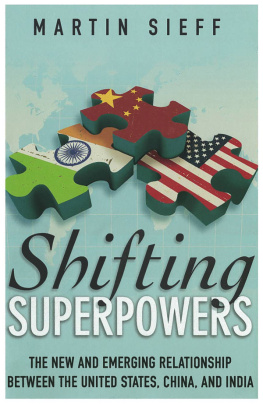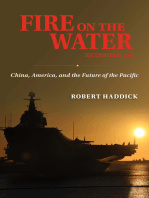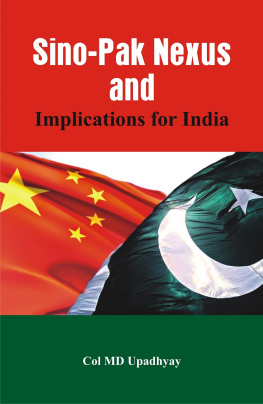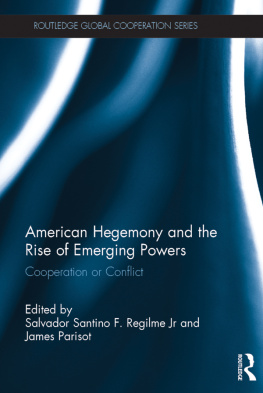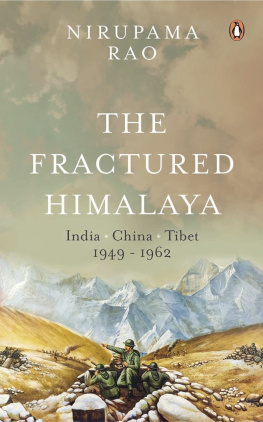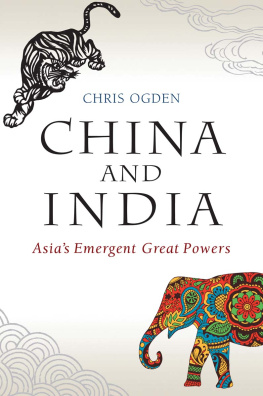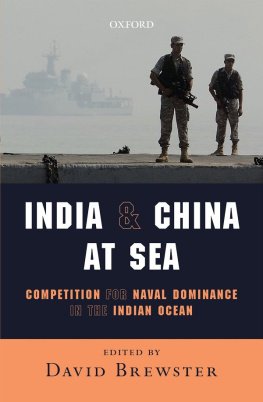

Copyright 2009 by the Cato Institute.
All rights reserved.
Library of Congress Cataloging-in-Publication Data
Sieff, Martin.
Shifting superpowers : the new and emerging relationship between the United States, China, and India / Martin Sieff.
p. cm.
Includes bibliographical references and index.
ISBN 978-1-935308-21-8 (hardback: alk. paper) 1. United StatesForeign relationsChina. 2. ChinaForeign relationsUnited States. 3. United StatesForeign relationsIndia. 4. IndiaForeign relationsUnited States. 5. ChinaForeign relationsIndia. 6.IndiaForeign relationsChina. I. Title.
E183.8.C5S5375 2010
327.73051--dc22
2009042024
Cover design by Jon Meyers.
Printed in the United States of America.
CATO INSTITUTE
1000 Massachusetts Ave., N.W.
Washington, D.C. 20001
www.cato.org
For Debbie
Couldnt have done it without you, hon.
Introduction: The Myth of Permanent
U.S. Global Dominance
Two vast nations, the most populous in recorded history, are rising, gaining economic and ultimately military power in Asia. One is a democracy; the other is not. The first is India; the second is China. Americans have historically ignored the former and obsessed over the latter. Currently, the romantic obsession in the eyes of Washington policymakers is shifting from Beijing to New Delhi. But it matters little. Both nations are pursuing their own interests, as organized nation-states have done for many centuries.
But within the Washington Beltway, Republicans and Democrats, conservatives and liberals alike, overwhelmingly buy into the same delusion. They assume that Americas unipolar moment of global dominance can and will be sustained.1 Since the terrorist attacks of September 11, 2001, the U.S. military presence has expanded in Central Asia at the very time that some fear the U.S. homeland to be under greater threat than ever before.2 The need to rebuild the U.S. Army after its grueling deployments in Iraq and Afghanistan may force future administrations to keep U.S. ground forces closer to home. And yet the placement of troops in China and Indias strategic neighborhood is consistent with the Bush administrations National Security Strategy of September 2002, issued a year after the 9/11 attacks, and a half year before the invasion of Iraq, which explicitly committed the United States to actively work to prevent the rise of major hegemonic powers that could conceivably challenge unipolar dominance.3
The Bush administration, like Clintons before it, operated in Asia on the assumption that hands-on U.S. leadership in Asia could work. Indeed, the neoconservatives who influenced strategic planning in Americas first 21st-century administration argued explicitly that the ancient principle of balancing, whereby rising nations gang up to first hinder, then block, then topple any would-be continental or global hegemon, is now extinct.4 They argued that the United Statesalone among the great nations of historyhad solved the enduring riddle of international relations.5
America, so the argument went, had convinced the rest of the world that it had nothing to fear from the United States because it was a benign hegemon; and besides, other nations have no hope of matching American wealth, resources, advanced technology, and power, so why bother?
But India and China in the early 21st century offer timely case studies on why these views are already wrong. In 2003, for the first time in its history, China outstripped the United States as the greatest magnet for foreign direct investment in the world. When President Barack Obama took office in January 2009, the U.S. government was projecting an annual federal budget deficit of $1.2 trillion. China, through its purchase of U.S. Treasury bonds, had helped finance Washingtons spending binge and therefore held a crucial credit advantage over the United States, similar to that which 18th-century Britain held over France, and that which the 20th-century United States held over Britain. In each case, once this tipping point of global financial and industrial power was reached, it proved impossible to reverse.6 China began to behave as a country with leverage. As U.S. economic problems multiplied, Chinese leaders became more assertive.
Meanwhile, India, at the very moment when its relations with the United States were flowering as never before, went its own way on myriad crucial and often troubling issues.7 India retained its more than three-decades-old strategic alliance with Russia. Indian leaders from the Hindu nationalist Bharatiya Janata Party eagerly engaged China in diplomatic and strategic dialogue. And they made very clear that they would not accede to U.S. pressures or suggestions on making any concessions to Pakistan that might conceivably weaken their hold on Kashmir.8
In fact, this shrugging off of the wishes of the American global hegemon was nothing new for a major U.S. land ally in Asia. During the two decades that China looked to the United States to protect it from the threat of overwhelming Soviet military power, it steadily expanded its industrial and manufacturing capacity. The tremendous free-market success of China in the quarter century following the great reforms of Paramount Leader Deng Xiaoping did not, however, lead to the inexorable spread of pro-American democratic values and institutions, as many American theoreticians prophesied they would.9
The rise of the new middle class in China has certainly been remarkable. McKinsey and Co. estimates that it now numbers 300 million. But that means there are still a billion people in China who have not been brought into the inner circle of prosperity and modernity that the free-market economy generates. That is why Hernando de Soto, author of The Mystery of Capital: Why CapitalismTriumphs in the West and Fails Everywhere Else, has made the point that Chinas prospects for completing its transformation into a freemarket capitalist society and thereafter progressing to democracy will be a race to bring in a sufficiently large number of those people still outside the system before they turn against it. A violent reaction by those left behind in Chinas race to modernize could tear down what has already been accomplished.10
Even at the height of its global power, the United States could never significantly influence internal developments in authoritarian China. Americas influence on democratic India was even more limited. India had been an English-speaking democracy that was committed to the rule of law and the freedom of the press, with genuinely free and overwhelmingly fair elections. Yet this did not prevent it from being an ally of the Soviet Union, and later Russia, for more than 30 years. Delhi had been a leading global critic of Washingtons actions for more than 40.
The vagaries and unpredictability of Indian politics confounded Washington. The Bush administrations enthusiastic support for the free-market, pro-American government of Prime Minister Atal Bihari Vajpayee did not prevent its shocking defeat by the Congress Party in the Indian general elections of 2004. When Indians went to the polls again in May 2009, the Obama administration refused to play favorites.
These elections were fair and their results universally accepted. Americans should have been delighted that the largest democracy in the world, a showcase for all Asia, was functioning so well. Yet the outcome of that same open and effective electoral process had in 2004 toppled a government that the Bush team had confidently counted on to advance its agenda of confronting radical Muslim nations and containing China. Democracy clearly did not always guarantee the return of governments amenable to the desires and goals of Washington policymakers.

